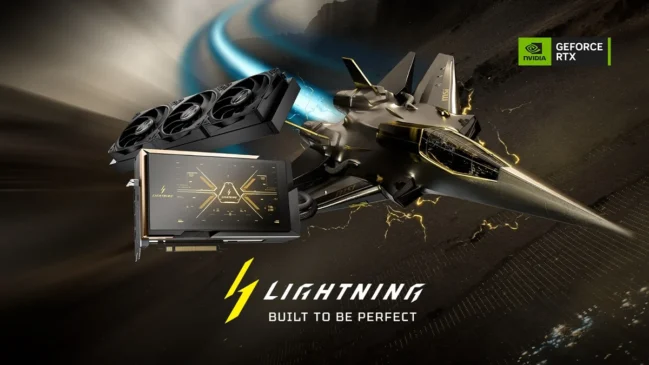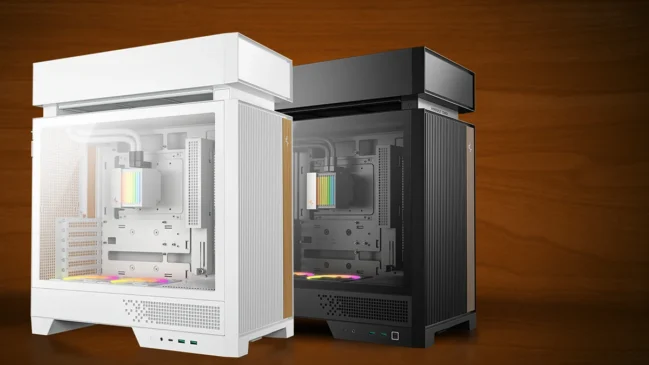
Kingston is one of the biggest players in the flash storage and memory market. While they specialize in memory modules and USB/flashcard storage, they are also big players in the SSD market with products like the A2000, KC2500, etc.

Today, we have the KC3000 for review. This is the direct successor of KC2500 we reviewed back in 2020. While the KC2500 used Silicon Motions SM2262ENG controller with a PCIe 3.0 interface; the KC3000 uses Phisons E18 controller with Microns 176L NAND with a PCIe 4.0 interface. Kingston also decided to slap on 2GB DDR4 for good measures.
| TechARX | Kingston KC3000 NVMe | |||
|---|---|---|---|---|
| Capacity | 512 GB | 1024 GB | 2048 GB | 4096 GB |
| Model Number | SKC3000S/512G | SKC3000S/1024G | SKC3000S/2048G | SKC3000S/4096G |
| Controller | Phison PS5018-E18 | |||
| NAND Flash | Micron 176-Layer 3D TLC B47R Rebranded as Kingston FB25608UCM1-9E | |||
| Form-Factor | M.2 2280 | |||
| Interface/Protocol | PCIe Gen 4 x4, NVMe 1.3 | |||
| Sequential Read | Upto 7000 MB/s | Upto 7000 MB/s | Upto 7000 MB/s | Upto 7000 MB/s |
| Sequential Write | Upto 3900 MB/s | Upto 6000 MB/s | Upto 7000 MB/s | Upto 7000 MB/s |
| Random Read IOPS | 450K IOPS | 900K IOPS | 1000K IOPS | 1000K IOPS |
| Random Write IOPS | 900K IOPS | 1000K IOPS | 1000K IOPS | 1000K IOPS |
| DRAM Buffer | 2 GB Kingston DDR4-2666 | |||
| MTBF | 1,800,000 hours | |||
| Write Endurance | 400 TBW | 800 TBW | 1600 TBW | 3200 TBW |
| Warranty | 5 years | |||
The Kingston KC3000 comes in capacities of 512 GB ($135), 1 TB ($290), 2 TB ($450), and 4 TB ($1200). Not all the models are available in the Indian Channel as of now so we couldn’t give a price per GB analysis. We were supplied with the 2TB model for review by the folks over at Kingston India.
Close Look
On top of the KC3000 Kingston has given an aluminum heat spreader since the E18 can run a bit warm. According to Kingston, the black coating is graphene—a special nano-arrangement of carbon atoms that has outstanding heat-transfer properties. We decided not to destroy the heat spreader since it was fixed a little too well.

The PCB contains the controller, eight flash chips, and two DRAM chips.
Editors Note: Since we didn’t take off the top heatsink (because reasons! ), we decided to dive into the interwebz and research for component analysis.
The SSD is controlled by the Phison PS5018-E18. This is Phison’s PCI-Express 4.0 controller with eight channels. The Phison is produced on TSMC’s 12-nanometer node and uses five Arm Cortex R5 CPU cores. The E18 can support up to 32 die with NVMe 1.4, TLC, DDR4 memory.

The Eight flash chips are Micron 176-layer 3D TLC NAND B47R. Kingston Buys them in bulk and repackages them with their own branding.
Two Kingston branded DDR4-2666 chips provide the cache for the mapping tables.
Test Setup
We requested the folks from Tuktak Tech community to handle the testing along with us as a collabo and they graciously accepted. The test rigs are from them and the effort is joint and the result was fun! Go check them out on Youtube, you will not be disappointed!
| Processor | Ryzen 9 3900X |
|---|---|
| Motherboard | AsRock B550 Steel Legend |
| Memory | 4x16GB 3600 MHz (16-19-19-39) Trident Z Neo (Dual Rank SK Hynix) |
| Graphics Card | Colorful iGame Geforce RTX 3060 TI Ultra OC |
| Storage | KINGSTON KC3000 2TB |
| Power Supply | Deepcool DQ850M-V2-L |
Benchmark
We ran the KC3000 through our usual suite. The SSD came through with flying colors as expected. This is one powerful SSD.
Atto Disk Benchmark
The great thing about ATTO is that one can test with predefined block sizes. So, we can test with a 32MB sequence of 4KB files, yet also 32MB in 1MB files, providing an opportunity to test with various file sizes. This benchmark is preferred among manufacturers as ATTO uses RAW or compressible data and, for our benchmarks, we used a set length of 256mb and tested both the Read and Write performances for various transfer sizes ranging from 0.5 to 8192kb with a user-selected queue depths.

CRYSTAL DISK Benchmark
Crystal Disk Benchmark is used to measure read and Write performances through the sampling of highly compressible data (oFill/1Fill), or random data. Crystal Disk Mark scores usually drop a bit compared to ATTO, and this is the result of the test data now being primarily incompressible – Mostly movies, music, and photographs. We tested the drive with 1 GiB Sample with and without the heatsink that came with the motherboard.
Anvil’s Storage utilities Benchmark
Anvil Pro or Anvil’s Storage Utilities[Depending on what you’d want to call it] is an ‘all-inclusive’ storage utility that allows testing transfer speeds as well as IOPS and lets the user tweak and adjust to find just the right mix in their testing medium, the IOPS tests being fully configurable with preset testing scenarios for read, write and mixed IO. The Benchmarks menu includes an SSD test, Endurance Testing, and 3 pre-configured IOPS tests.

AS SSD benchmark Suite
This nice little German application gives an extensive result set. The test is popular, so I included it. AS SSD, for the most part, gives us the worst-case scenario in SSD transfer speeds because of its use of incompressible data.

Final Words
The KC3000 SSD is Kingston’s flagship product and for good reasons. The Phison E18+Micron 176-layer combo works pretty well in conjunction with the 2GB DDDR4 cache and in turn what we have is a fantastic product.
There’s is one small drawback though; which I am sure will be rectified soon. The KC3000 comes with a preinstalled metal heat spreader foil which works pretty well, for the most part, cooling the E18 controller. However, if the drive is hammered with sustained loads like a couple of hundred GB’s of incoming write, the drive tends to throttle down abruptly after some time. Granted, that is not a normal use case scenario, but it would be nicer to get a bit beefier heatsink which will do an even better cooling of the drive in the larger scale of things. This, however, doesn’t take away from the fact that the KC3000 is an absolutely fantastic product.
Overall, a GOLD from the team at TechARX! A must-buy if you are looking for a fast NVMe drive.









